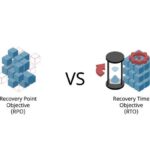Data loss can be catastrophic for small businesses, yet many continue to take unnecessary risks with their critical information. For the unprepared business, a ransomware attack, hardware failure, or even a simple human error can erase years of work in seconds. The aftermath often extends beyond just missing files—it includes operational downtime, damaged customer relationships, and sometimes irreparable harm to your reputation. While most business owners understand the importance of backups conceptually, the execution often falls short in ways that leave vulnerabilities wide open. Here are seven common data mistakes your small business should avoid!
Not Creating a Backup and Disaster Recovery Strategy
Many small businesses approach data backup as an afterthought rather than a critical business function. They install backup software and assume they’re protected without developing a comprehensive strategy. A proper backup and disaster recovery plan answers crucial questions: How quickly do you need to restore operations after data loss? Which systems are most critical? What’s your recovery point objective (how much data can you afford to lose)? Without clear answers to these questions, your backup solution may not align with your actual business needs. An effective strategy considers various disaster scenarios and provides specific protocols for each, ensuring you’re not making critical decisions during a crisis when stress levels are highest.
Only Using On-Premises Backup Solutions
Keeping all your backups in one physical location creates a single point of failure. If a fire, flood, or theft affects your premises, both your primary systems and backups could be compromised simultaneously. On-premises solutions also typically require significant upfront hardware investments and ongoing maintenance. A hybrid approach combining local backups for quick recovery of everyday issues with cloud storage for disaster protection provides multiple layers of security. This approach ensures your business can recover whether facing a minor file deletion or a major disaster affecting your entire facility.
Not Conducting Routine Backup Tests
According to a 2018 survey, only 28% of businesses conduct disaster recovery testing once a week or once a month. Only 50% test once a year, while 20% never test at all! The most dangerous mistake is assuming backups are working without verification. Many businesses discover their backup systems have been failing silently only when they desperately need to recover data. Regular testing of your backup and recovery process is essential—it confirms that your data is actually being saved and can be restored when needed. These tests should include complete restoration drills that simulate real recovery scenarios and measure how long the process takes. Without testing, you’re essentially hoping rather than knowing your safety net will hold when you need it most.
Securing Data Without Encryption
Backing up data without proper encryption exposes sensitive information to unauthorized access. This is especially problematic for businesses handling customer data, financial information, or protected health information subject to regulatory requirements. Unencrypted backups stored in the cloud or on portable devices represent significant security vulnerabilities and potential compliance violations. Modern backup solutions should include end-to-end encryption (E2EE) that protects data both during transmission and storage, ensuring that even if backup media is compromised, the information remains secure.
Selectively Backing Up Data
Many small businesses back up only what they consider “important” files—typically financial records and customer databases—while ignoring system configurations, application data, and employee work files. This selective approach creates risk, as it’s often difficult to anticipate which data will become critical during a recovery situation. A comprehensive backup should include all business data, operating systems, application settings, and even the customizations that make your systems work efficiently for your specific business needs. The small configuration file you overlooked today might be what prevents your restored system from functioning tomorrow.
Relying on Outdated Systems and Software
Technology evolves rapidly, yet many businesses continue to rely on outdated backup methods like periodic manual copies to external drives. These legacy approaches lack automation, version control, and security features found in modern solutions. Outdated backup software may also be incompatible with newer operating systems or unable to handle current data volumes. Regular evaluation and updating of your backup infrastructure ensures your protection keeps pace with both evolving threats and your growing business requirements.
Failing to Set Up Proper Retention Policies
Without clear retention policies, businesses either keep too little data (risking loss of important historical information) or retain everything indefinitely (wasting resources and potentially creating compliance issues). Effective retention policies balance legal requirements, business needs, and practical storage constraints. They should specify how long different types of data need to be kept, when backups can be purged, and how many versions of files to maintain. These policies ensure you can recover from both recent incidents and discover problems that may have occurred months ago.
Explore Data Backup and Recovery Strategies with Cynergy Tech!
With over forty-two years of experience, Cynergy Technology specializes in addressing the unique challenges small businesses face with data protection. We design customized backup and disaster recovery plans that align with your specific business needs, compliance requirements, and recovery objectives. Our solutions minimize downtime through rapid recovery capabilities, automated verification processes, and enterprise-grade encryption that keeps your data secure at every stage. We don’t just implement technology—we partner with you to build a comprehensive strategy that protects your business continuity even in worst-case scenarios. Let us help transform your backup approach from a technical afterthought to a business advantage.
Schedule a free consultation today and discover how our backup solutions can safeguard your business!







